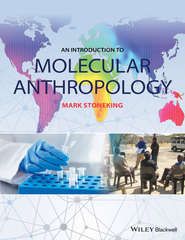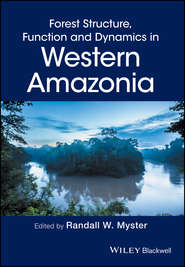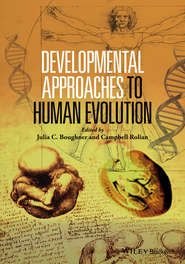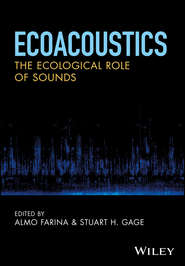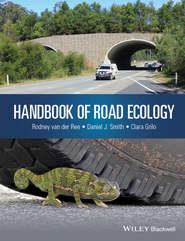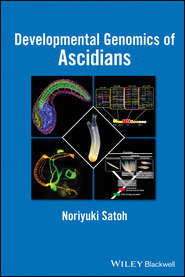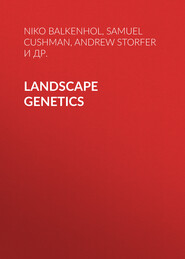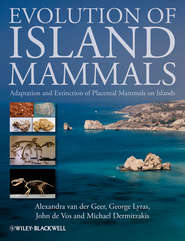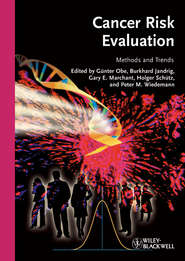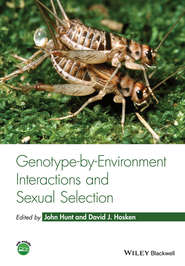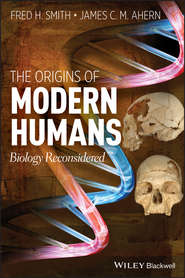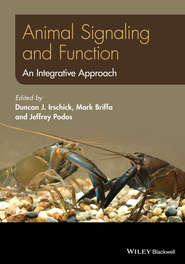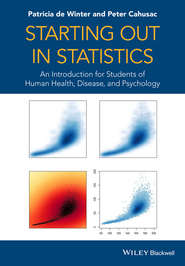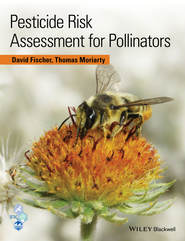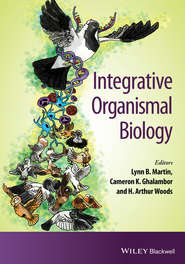общая биология
Molecular anthropology uses molecular genetic methods to address questions and issues of anthropological interest. More specifically, molecular anthropology is concerned with genetic evidence concerning human origins, migrations, and population relat…
Molecular anthropology uses molecular genetic methods to address questions and issues of anthropological interest. More specifically, molecular anthropology is concerned with genetic evidence concerning human origins, migrations, and population relat…
The Amazon Basin contains the largest and most diverse tropical rainforest in the world. Besides the Andes and the Atlantic Ocean, the rainforest is bounded to the north by the Guiana crystalline shield and to the south by the Brazilian crystalline s…
The Amazon Basin contains the largest and most diverse tropical rainforest in the world. Besides the Andes and the Atlantic Ocean, the rainforest is bounded to the north by the Guiana crystalline shield and to the south by the Brazilian crystalline s…
Developmental Approaches to Human Evolution encapsulates the current state of evolutionary developmental anthropology. This emerging scientific field applies tools and approaches from modern developmental biology to understand the role of genetic and…
Developmental Approaches to Human Evolution encapsulates the current state of evolutionary developmental anthropology. This emerging scientific field applies tools and approaches from modern developmental biology to understand the role of genetic and…
Molecular Neuroendocrinology: From Genome to Physiology, provides researchers and students with a critical examination of the steps being taken to decipher genome complexity in the context of the expression, regulation and physiological functions of …
Molecular Neuroendocrinology: From Genome to Physiology, provides researchers and students with a critical examination of the steps being taken to decipher genome complexity in the context of the expression, regulation and physiological functions of …
The sounds produced by geophonic, biophonic and technophonic sources are relevant to the function of natural and human modified ecosystems. Passive recording is one of the most non-invasive technologies as its use avoids human intrusion during acoust…
The sounds produced by geophonic, biophonic and technophonic sources are relevant to the function of natural and human modified ecosystems. Passive recording is one of the most non-invasive technologies as its use avoids human intrusion during acoust…
Winner of the IENE Project Award 2016. This authoritative volume brings together some of the world’s leading researchers, academics, practitioners and transportation agency personnel to present the current status of the ecological sustainability of t…
Winner of the IENE Project Award 2016. This authoritative volume brings together some of the world’s leading researchers, academics, practitioners and transportation agency personnel to present the current status of the ecological sustainability of t…
The simplicity and lack of redundancy in their regulatory genes have made ascidians one of the most useful species in studying developmental genomics. In Developmental Genomics of Ascidians, Dr. Noriyuki Satoh explains the developmental genomics of a…
The simplicity and lack of redundancy in their regulatory genes have made ascidians one of the most useful species in studying developmental genomics. In Developmental Genomics of Ascidians, Dr. Noriyuki Satoh explains the developmental genomics of a…
Despite the substantial interest in landscape genetics from the scientific community, learning about the concepts and methods underlying the field remains very challenging. The reason for this is the highly interdisciplinary nature of the field, whic…
Despite the substantial interest in landscape genetics from the scientific community, learning about the concepts and methods underlying the field remains very challenging. The reason for this is the highly interdisciplinary nature of the field, whic…
Evolution on islands differs in a number of important ways from evolution on mainland areas. Over millions of years of isolation, exceptional and sometimes bizarre mammals evolved on islands, such as pig-sized elephants and hippos, giant rats and gor…
Evolution on islands differs in a number of important ways from evolution on mainland areas. Over millions of years of isolation, exceptional and sometimes bizarre mammals evolved on islands, such as pig-sized elephants and hippos, giant rats and gor…
An overview of the different approaches to cancer risk assessment of environmental factors – including «-omics» technologies, discussing the strengths and weaknesses of the methods in different fields. The main focus is on the carcinogenic effects of…
An overview of the different approaches to cancer risk assessment of environmental factors – including «-omics» technologies, discussing the strengths and weaknesses of the methods in different fields. The main focus is on the carcinogenic effects of…
Cell assays include all methods of measurements on living cells. Confined for a long time to research laboratories, these emerging methods have, in recent years, found industrial applications that are increasingly varied and, from now on, regulatory.…
Cell assays include all methods of measurements on living cells. Confined for a long time to research laboratories, these emerging methods have, in recent years, found industrial applications that are increasingly varied and, from now on, regulatory.…
Sexual selection is recognized as being responsible for some of the most extravagant morphologies and behaviors in the natural world, as well as a driver of some of the most rapid evolution. While Charles Darwin’s theory is now a fundamental componen…
Sexual selection is recognized as being responsible for some of the most extravagant morphologies and behaviors in the natural world, as well as a driver of some of the most rapid evolution. While Charles Darwin’s theory is now a fundamental componen…
This update to the award-winning The Origins of Modern Humans: A World Survey of the Fossil Evidence covers the most accepted common theories concerning the emergence of modern Homo sapiens—adding fresh insight from top young scholars on the key new …
This update to the award-winning The Origins of Modern Humans: A World Survey of the Fossil Evidence covers the most accepted common theories concerning the emergence of modern Homo sapiens—adding fresh insight from top young scholars on the key new …
The diversity of animal signals has been widely documented, and the generality of animal signals also tantalizingly suggests that there are common mechanisms that have selected for their origin. However, while much progress has been made on some fron…
The diversity of animal signals has been widely documented, and the generality of animal signals also tantalizingly suggests that there are common mechanisms that have selected for their origin. However, while much progress has been made on some fron…
To form a strong grounding in human-related sciences it is essential for students to grasp the fundamental concepts of statistical analysis, rather than simply learning to use statistical software. Although the software is useful, it does not arm a s…
To form a strong grounding in human-related sciences it is essential for students to grasp the fundamental concepts of statistical analysis, rather than simply learning to use statistical software. Although the software is useful, it does not arm a s…
Pollinators play a vital role in ecosystem health and are essential to ensuring food security. With declines in both managed and wild pollinator populations in recent years, scientists and regulators have sought answers to this problem and have explo…
Pollinators play a vital role in ecosystem health and are essential to ensuring food security. With declines in both managed and wild pollinator populations in recent years, scientists and regulators have sought answers to this problem and have explo…
Integrative Organismal Biology synthesizes current understandings of the causes and consequences of individual variation at the physiological, behavioral and organismal levels. Emphasizing key topics such as phenotypic plasticity and flexibility, and…
Integrative Organismal Biology synthesizes current understandings of the causes and consequences of individual variation at the physiological, behavioral and organismal levels. Emphasizing key topics such as phenotypic plasticity and flexibility, and…
Molecular Aspects of Aging: Understanding Lung Aging covers recent research in the mechanisms that contribute to cellular senescence. Covering universal themes in aging, such as the exhaustion of stem cells and subsequent loss of the regenerative ref…
Molecular Aspects of Aging: Understanding Lung Aging covers recent research in the mechanisms that contribute to cellular senescence. Covering universal themes in aging, such as the exhaustion of stem cells and subsequent loss of the regenerative ref…
The first training manual for new staff working in BSL3/4 labs. This guide is based on a course developed in 2007 by the EU COST action group 28b which serves as a standard for many courses BSL3/4 training courses worldwide. The four-day course consi…
The first training manual for new staff working in BSL3/4 labs. This guide is based on a course developed in 2007 by the EU COST action group 28b which serves as a standard for many courses BSL3/4 training courses worldwide. The four-day course consi…
Sensitivity to scales is one of the key challenges in environmental governance. Climate change, food production, energy supply, and natural resource management are examples of environmental challenges that stretch across scales and require action at …
Sensitivity to scales is one of the key challenges in environmental governance. Climate change, food production, energy supply, and natural resource management are examples of environmental challenges that stretch across scales and require action at …


